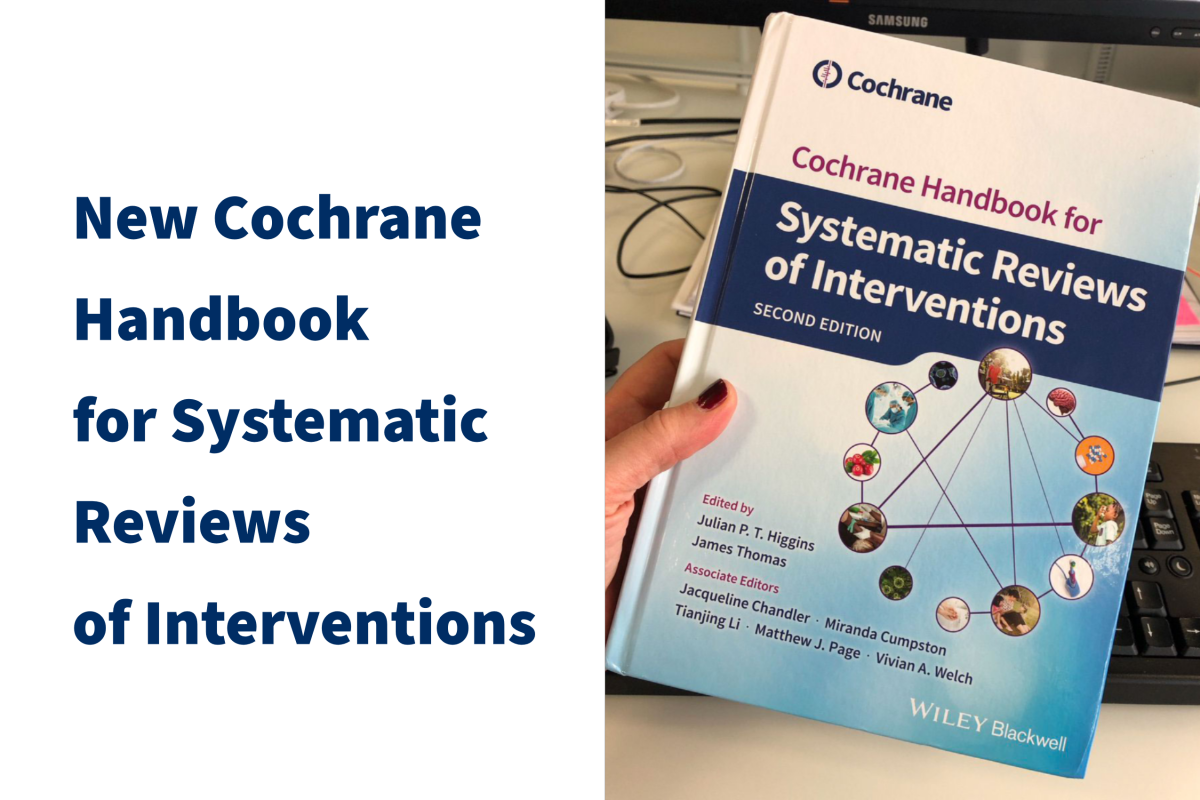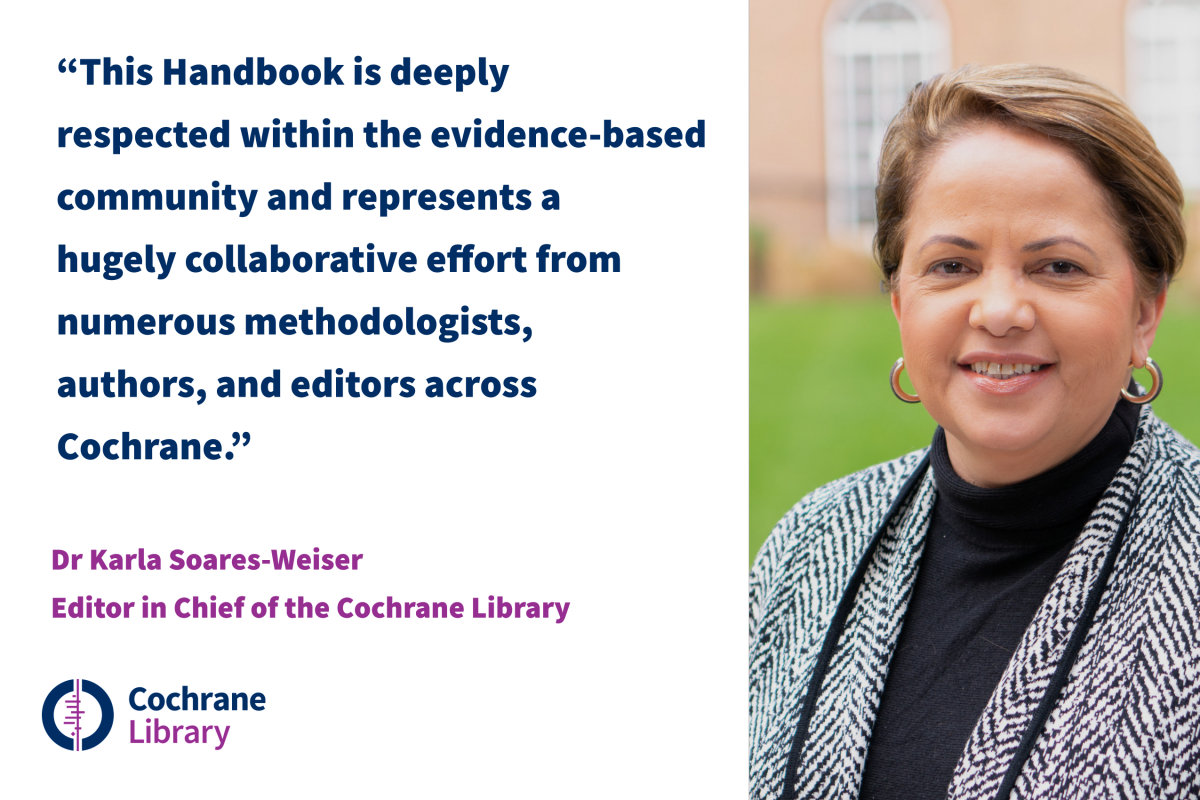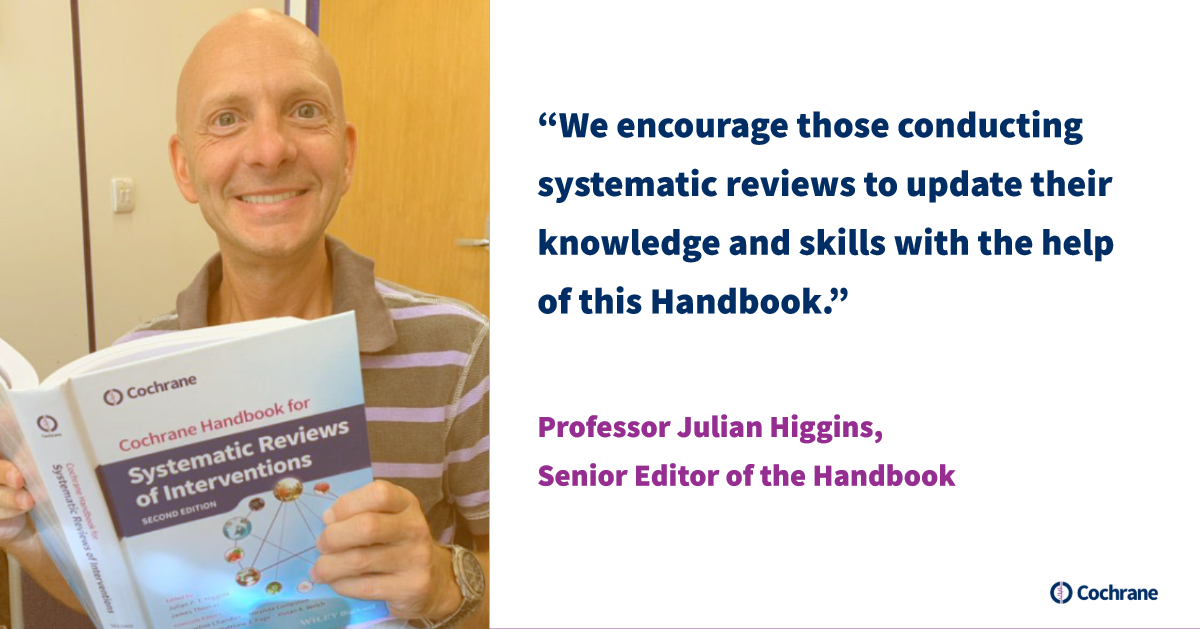
Cochrane is delighted to announce the publication of the new edition of the Cochrane Handbook for Systematic Reviews of Interventions following extensive revision. Designed for authors and editors of Cochrane Reviews, but equally useful for anyone conducting systematic reviews, it describes the methods and best practices in planning, conducting and interpretation of systematic reviews to inform decision-making around the use of health and healthcare interventions. Revised from cover to cover since the last major update in 2008, the Handbook reflects current best practice based on the latest methods research, and provides the only such comprehensive guide to conducting systematic reviews of interventions for both new and experienced authors.
The new edition of the Handbook is divided into four parts. The first section (available only online) addresses issues specific to working with Cochrane. The second describes the core methods applicable to systematic reviews of interventions, from framing the question through to interpreting the results. The third and fourth parts address specific perspectives and methodological issues that are relevant to some, though not all, reviews, such as non-randomized studies, qualitative evidence and economics evidence.

The new edition includes:
- A new chapter addressing issues around intervention complexity, covering interventions with multiple components, interventions in which there are interactions between the intervention and its context, and interventions that are introduced into complex systems, as well as a new chapter addressing how equity can be considered in systematic reviews.
- A major new chapter on network meta-analysis, because decision makers often need to decide among multiple intervention options.
- Substantial developments in the area of risk of bias assessment, including extensively revised guidance on risk of bias assessment in randomized trials and assessing reporting biases, and a new chapter on risk of bias assessment in non-randomized trials.
- New chapters addressing how authors can plan the review’s questions, comparisons and outcomes to ensure effective and meaningful synthesis, as well as how to plan for and execute synthesis using methods other than meta-analysis.

Cochrane’s Editor in Chief, Karla Soares-Weiser warmly welcomed today’s launch: “This Handbook is well respected within the evidence-based community and represents a hugely collaborative effort from numerous methodologists, authors, and editors across Cochrane. Their collective accomplishment will, undoubtedly, improve the skills and knowledge of systematic reviewers working around the world.”

Professor Julian Higgins, Senior Editor of the Handbook, said, “We encourage those conducting systematic reviews to update their knowledge and skills with the help of this Handbook. It has been completely revised to reflect current good practice, with several new chapters as well as comprehensive updates across the existing content.
“In the eleven years since the previous publication there have been important advances in methods used to conduct systematic reviews, and we have tried to make these accessible to review authors. Substantial amounts of new material reflect developments in our understanding of bias in research, and in how to address complexity.
“We are keen to ensure that Cochrane Reviews are useful to end users, including health professionals, policy decision makers and consumers. As a result, network meta-analysis is now portrayed as a key method. We also recognize that many reviews can’t access data suitable for meta-analysis, so we describe appropriate alternative methods for synthesis that still allow robust conclusions to be drawn.”
The Handbook has been written by a team of over one hundred authors and editors, led by Senior Editors Professor Julian Higgins and Professor James Thomas, alongside Associate Editors Jacqueline Chandler, Miranda Cumpston, Associate Professor Tianjing Li, Dr Matthew Page, and Associate Professor Vivian Welch.
- For more information visit https://training.cochrane.org/handbook
- This new edition is available at £49.99/€56.50/$82.50. Purchase your copy from Wiley here.

